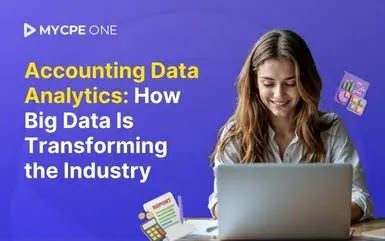What is CPE (Continuing Professional Education) for CPAs?
Ultimate Guide to Earn CPE Credits for CPAs and Accountants
Whether you’re a newly minted CPA or a seasoned accounting pro, the learning never stops. In today’s fast-paced regulatory landscape, Continuing Professional Education (CPE) is no longer a checkbox—it’s a career lifeline. But what exactly is CPE, and how can you make the most of it without it becoming a time-consuming chore?
In this ultimate guide, we’ll break down everything you need to know about CPE Credits for CPAs and CPE for Accountants, explore smart ways to earn them, and reveal how staying compliant can actually fuel your career growth.
Let’s demystify CPE and give your accounting game a serious upgrade.
Why CPE Matters More Than Ever
If you’re wondering why you’re required to sit through hours of continuing education every year, you’re not alone. But here’s the deal:
-
Financial regulations evolve constantly.
-
Tax laws are rewritten practically every fiscal season.
-
Technology is reshaping the accounting field (think AI, cloud platforms, and real-time audits).
Without CPE, you risk falling behind—not just in compliance, but in relevance.
Real-World Impact of Missing CPE:
-
License Suspension: Many state boards suspend or revoke CPA licenses for non-compliance.
-
Career Stagnation: Without upskilling, you become less competitive.
-
Ethical Risks: CPE often includes ethics training that keeps your practice clean and credible.
In short, CPE is your license to stay sharp, informed, and in demand.
What Is CPE?
CPE (Continuing Professional Education) refers to the mandatory educational activities CPAs and accountants must complete to maintain their professional licenses.
But not all CPE is created equal. The goal isn’t just ticking off hours—it’s about selecting quality, relevant courses that add value.
Common CPE Categories:
-
Accounting & Auditing Standards
-
Taxation
-
Regulatory Ethics
-
Technology for Finance Professionals
-
Business Management & Organization
Who Needs CPE—and How Often?
Every licensed CPA and many non-CPA accountants. Depending on your state or industry body, the rules vary.
Typical Requirements:
-
40 CPE hours per year (varies by state)
-
Some require 4 hours in ethics
-
Renewal period: Annual or biennial
Check with your State Board of Accountancy to confirm the requirements for your jurisdiction.
How to Earn CPE Credits (Without Losing Your Mind)
Let’s make this practical. There are multiple ways to earn CPE credits for accountants—but some are more effective (and convenient) than others.
Top Methods to Earn CPE:
-
✅ Live Webinars: Real-time interaction, Q&A sessions
-
✅ On-Demand Courses: Learn at your own pace
-
✅ Self-Study Programs: Downloadable content with quizzes
-
✅ In-Person Conferences: Networking + knowledge
-
✅ Ethics & Regulatory Training: Required by most boards
-
✅ Nano Learning: Bite-sized learning, quick credits
What Qualifies as a CPE Credit?
Typically, 1 CPE credit = 50 minutes of learning.
But be cautious: Not all learning activities are accepted by every state board. Always make sure your course provider is NASBA-approved and courses are QAS-certified.
Here’s what counts:
-
Courses from approved providers
-
Topics related to your field or responsibilities
-
Completion with documentation (e.g., quiz scores, attendance)
Mistakes CPAs Make (And How to Avoid Them)
Even experienced professionals fall into common CPE traps.
Top 5 CPE Mistakes:
-
Leaving CPE to the last minute
-
Choosing non-compliant providers
-
Ignoring ethics requirements
-
Failing to track completed credits
-
Overlooking state-specific rules
Don’t be that CPA scrambling at midnight before renewal. Plan your learning using trusted resources like the Ultimate Guide to Earn CPE Credits for CPAs and Accountants.
How CPE Can Boost Your Career
CPE isn’t just about compliance—it’s about becoming future-ready.
Benefits of Smart CPE Investment:
-
📈 Career Growth: Stay updated with emerging trends like forensic accounting or AI in audits
-
📚 Deeper Expertise: Develop niche skills that set you apart
-
🤝 Networking Opportunities: Especially through live sessions or conferences
-
🧠 Mental Refresh: Learn something new; keep your brain sharp!
Take, for example, Jessica, a mid-level CPA in New York. By focusing her CPE on data analytics and AI, she transitioned from general ledger reviews to leading automation projects—and doubled her salary in under two years.
That’s the power of strategic continuing education.
Trends to Watch in CPE for Accountants
The CPE landscape is evolving fast. Here’s what’s hot right now:
Current & Future CPE Trends:
-
Virtual Conferences & Webinars: More accessible than ever
-
AI & Automation Courses: Get ahead of disruption
-
ESG Reporting: Environmental, Social & Governance topics are gaining traction
-
Blockchain & Crypto Accounting
-
Cybersecurity for Financial Pros
Your CPE Checklist
Here’s a quick recap to keep you compliant and competitive:
✅ Understand your state-specific CPE requirements
✅ Choose NASBA-approved courses
✅ Track your credits (use platforms that auto-track)
✅ Include ethics and technical learning
✅ Plan your year in advance
✅ Use a trusted platform like MYCPE ONE
Ready to Get Started?
Whether you’re planning ahead or catching up, don’t wait until the deadline. Staying current isn’t just about the law—it’s about leading in your profession.
✔ Accredited content
✔ Real-time tracking
✔ Courses built for real-world skills
Stay compliant. Stay competitive. Start your CPE journey now.



Comments
Post a Comment